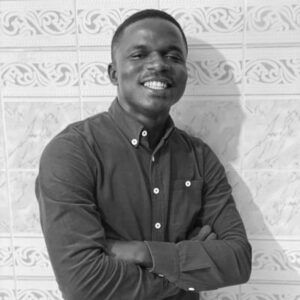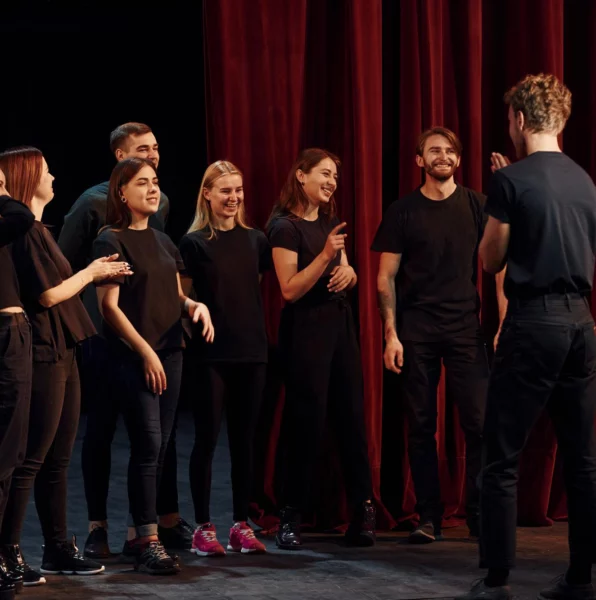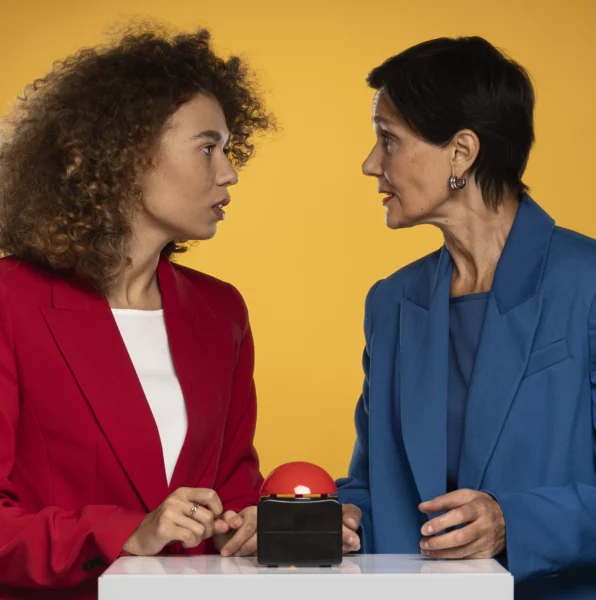Why do we need Indigenous science communication? Using Nigeria as an example, Temilade Sesan and Ayodele Ibiyemi explain where Western-style science communication reaches its limits and why it is important to refocus the attention on Indigenous knowledge and traditions.
“It’s not just about science, it’s about the values”
Mrs. Sesan and Mr. Ibiyemi, for an anthology on race and sociocultural inclusion in science communication you wrote an essay on the imperatives for the development of an Indigenous science communication agenda, in Nigeria. What prompted you both to write this book chapter?

Ayodele Ibiyemi: When we talk about Indigenous science communication, I would want us to begin from the semantics of the word itself. So when we say people are Indigenous, what does it mean? Indigeneity is something that is framed as opposed to something else. The term is very popular in a colonial settler society like the United States, but it’s not very popular in Nigeria, where colonialism formally ended. Indigeneity is something which is framed against what is considered as standard.
You can’t talk about Indigenous science communication without talking about Indigenous knowledge. We use that term deliberately to show that this knowledge existed as a full system that worked perfectly even before and without colonialism. Indigenous science and science communication we explain as something that needs to reclaim its own full extensive power structure that was deliberately erased by colonialism.
Temilade Sesan: I think that some kind of global exchange is desirable. But in our system of global capitalism and science and technology development, the benefits are more apparent in certain parts of the world. In Nigeria and many parts of Africa there is something like an imposition of external knowledge on Indigenous ways of knowing. In our essay, entitled, “Past, Present and Future: Perspectives on the Development of an Indigenous Science Communication Agenda in Nigeria’, we try to refocus the attention on what already exists in terms of science and science communication capacity in Nigeria and other African countries.
How can attention be refocused on local science communication capacities?

Sesan: For example, one big area is funding. There is currently a preponderance of science communication initiatives on the African continent that are funded by storied Western institutions, especially those invested in the broader goals of knowledge production and societal application. That is all well and good, but this support – perhaps necessarily – occurs at the fringes and does not get to the core of what is required for a substantive cultural and political shift. This is why we are advocating for a return to more local, national, and Indigenous funding opportunities for science communication. So that we can get back to creating narratives about our own science with our own funding. It’s urgent to recognize the knowhow that is embedded in our cultures, in our ways of knowing and being. We want to push that away from the periphery into the mainstream.
Ibiyemi: Let me give you an example: Before contact with the West, countries like Uganda and Rwanda knew practices of cesarean section to deliver babies. But now the whole world calls our methods the cesarean section. A name that comes from another part of the world. So it’s difficult to convince people from these areas that their ancestors have been doing this long before White people came. Globally the system of education frames some of our practices that were functional as ritualistic or chaotic, while the European systems are portrayed as positive. Although many methods that we call modern and Western are actually Indigenous in origin.
Sesan: I would like to add the idea that all science is local. Also much of Western science is local, but there are mechanisms through the global capitalist system to spread it across the globe. What distinguishes somebody who is delivering babies in Uganda from somebody who did it somewhere else? But then one idea gets the upper hand at the expense of the other. Science communication worldwide would benefit from having a look at what different societies have contributed over time.
What is going wrong with mainstream science communication?
Sesan: I guess the common finding is that actually in many ways Eurocentric notions of science are perceived and experienced more or less as a cultural misfit. And, this is partly to do with all of these colonial legacies, but also with postcolonial structures.
Let me use the example of the primary healthcare system. It is supposed to be the closest government contact with people in rural areas. But even in the primary health centers, you find that a lot of people cannot relate. One of the last points we make in our chapter is that we need to address the hubris that is implicit in science communication. In the case of public health communication, the entire system is designed to alienate that person or that group of people just because someone doesn’t speak English, didn’t go to school, or didn’t have a formal education. For example, studies show how poor communication between public health authorities and citizens in rural communities in Nigeria and Uganda is both symptomatic of community alienation and synonymous with ineffective health campaigns in those areas. This state of apathy is a vestige of the colonial era, when, as the Lancet reports, the introduction of Western medicine in Nigeria in particular “resulted in inbuilt inequalities… and a detrimental social distance from users and communities.”
The whole Western oriented science communication agenda has actually othered people, even within their own countries. I think this creates a power distance which is also a social, political and cultural distance, which has caused a lot of damage. As long as science communication does not reach the people for whom it is supposedly intended or does not address their needs, it has failed.
What is the relationship between Indigenous science and Indigenous science communication on the one hand and Westernized science communication on the other?
Sesan: The answer is that the relationship is very poor. I think it is a collective project even in the so-called Global South to decolonize the minds. There are very few examples that have achieved quite a bit in this regard. Let me come back to the public health system. For a long time in Nigeria it was not acceptable to use traditional birth attendants. The modern healthcare system is what you should go for. But for many Indigenous people, that just doesn’t work – at least partly because public health services in many African countries find it difficult to reproduce the high levels of trust that communities have in the traditional systems that have served them for centuries.
So, it’s not just about science, it’s about the values that go along with the way of life. It’s about the element of trust, which is not easily replicable. You can’t manufacture that.
Now there is greater integration between the two systems. After decades of work in these places, traditional birth attendants now get an official role in delivering babies. People are more or less free to go to a traditional birth attendant, as long as the person has experience and training. If there are complications that they cannot handle, then they refer the pregnant woman to a primary health center, which will perhaps refer them onto a general hospital. This kind of synergy is a small example, one of very few I can think of.
What exactly can be done in that respect? Which players do you address with your demands?
Sesan: We think that we need a radical overhaul of the education system – as we elaborate in an article coming soon to the Journal of Science Communication. Currently, the reliance on English as the only language of instruction does more harm than good on a national level. It’s an interesting dynamic how here in Nigeria English is seen as a language of wisdom or of intelligence and of science. We do not want to attack English, but we strongly support the idea of a bilingual education.
There have been experiments to start the primary education in the local language and then complement it with the official language. Research has shown that students are more engaged and interested in science when science communication is delivered in the local language. Because this way they can identify and it becomes part of their life.
This is not just about paying lip service to some kind of national direction, this is about the Ministry of Education, the Ministry of Science, the Ministry of Technology, all these players have to come together to take this agenda forward.
Ibiyemi: All of us operate within a system that we cannot escape from. I am Yoruba and that is my language. So the fact that we are speaking English right now is because of colonialism.
I consider the idea of endogenous education as one of the most important steps that has to be taken. It acknowledges the specificities in each culture, responds to the Indigenous systems and also tries to correct some of the legacies of colonialism. Generations of scholars propagated that the history of the world began with colonialism. Now we need to educate people about what their ancestors did and how important their lives were.






